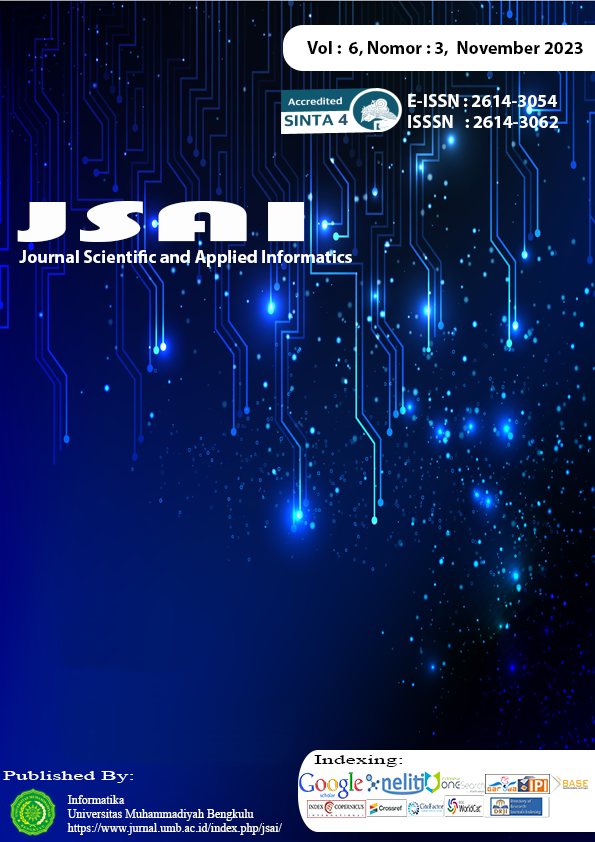Measuring the Readiness of the Bengkulu City Government Towards a Smart City Using the E-Readiness Model
DOI:
https://doi.org/10.36085/jsai.v6i3.5826Abstract
Developmental cities like Bengkulu City are encouraged to plan for smart cities by the Ministry of Communication and Information's programme in the Movement Towards Smart City in 2023. The Communication, Information, and Encryption Office of the Bengkulu City Government has begun planning a smart city in Bengkulu City. This study aims to assess the e-readiness of Bengkulu City's internal government and its impact on the implementation of smart cities. The e-readiness technique, which was created from the Molla-Licker model and uses six indicators. The results of measuring various indicators suggest that the Bengkulu City government is well-equipped to become a smart city. The indicators evaluated were awareness, governance, commitment, business resources, human resources, technological resources, and adoption, and they yielded values of 4.44, 4.28, 4.14, 4.25, 4.52, and 4.48, respectively. Based on feedback from 31 respondents, the average value of 4.28 indicates that the government's internal readiness is at a "ready" level for a smart city. The test results on the impact of readiness factors have revealed that only the commitment indicator has a positive effect on the implementation of a smart city. In contrast, five other variables have shown no significant effect. These findings could be crucial in determining the success of future smart city implementations.Downloads
Published
2023-11-29
Issue
Section
Articles
License
Copyright (c) 2023 Ferzha Putra Utama, Kiki Akiong Manishe, Desi Andreswari

This work is licensed under a Creative Commons Attribution-NonCommercial-NoDerivatives 4.0 International License.







